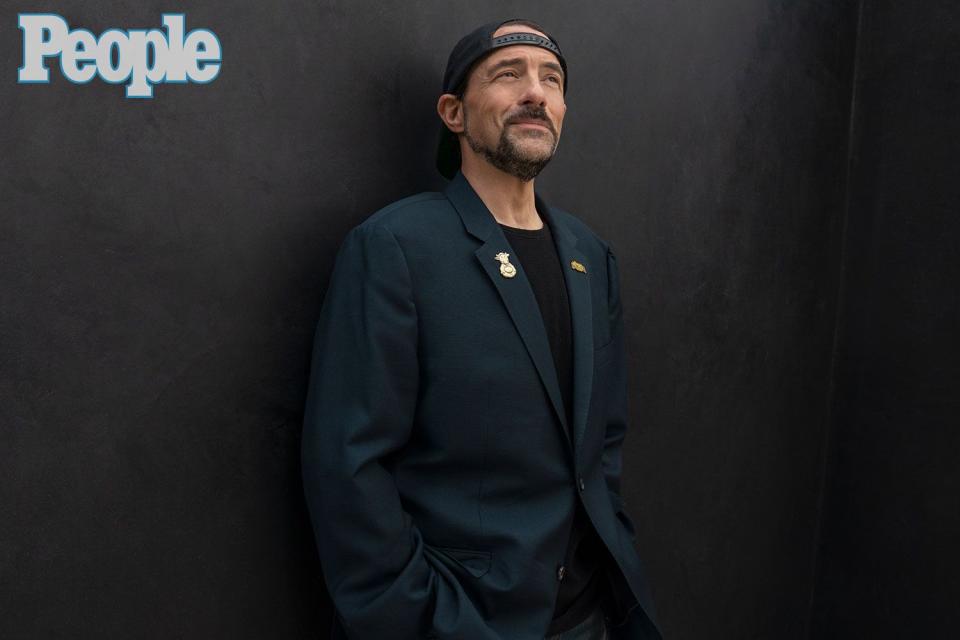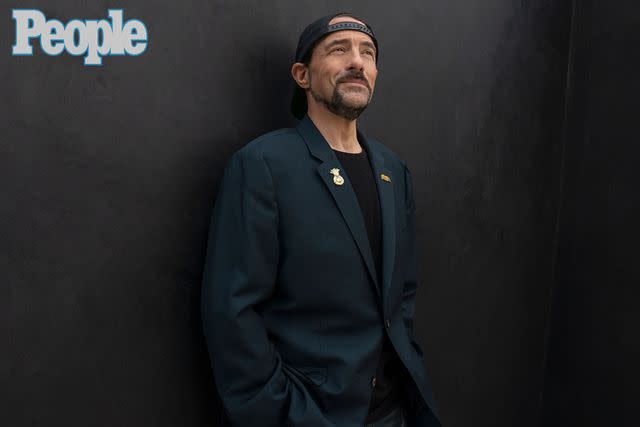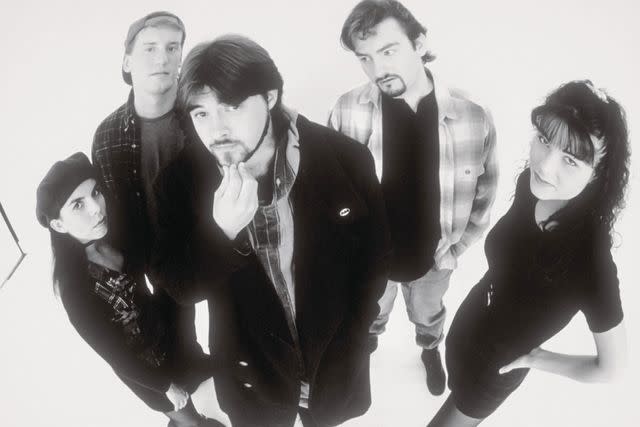Kevin Smith Reveals He Got Mental Health Treatment After His 'Complete Break From Reality' (Exclusive)
- Oops!Something went wrong.Please try again later.
"I was in a weird, dark place," the Clerks director tells PEOPLE of his mental health struggles

One morning last January, film director Kevin Smith awoke in terror, convinced he was losing his mind.
The next day Smith, 52, checked into Arizona's Sierra Tucson treatment center where he spent the next month in intensive therapy, learning how several childhood traumas had led him to create and hide behind a "larger than life" public persona he calls "the other guy" that eventually usurped his core sense of self.
"It was scary," he says, speaking about the incident—that he describes as a "complete break from reality"—publicly for the first time in this week's PEOPLE.
"At that moment, I wouldn't have been averse to not being around any longer. I called a friend and said, 'I'm in a weird, dark place. I need to go somewhere and get help.'"
Over four decades have passed since the events—the sexual abuse and the shaming over his weight—left a psychological wound in Smith that he has spent his life trying to compensate.

He was just six years old when an older boy he didn't know forced him to perform sexual acts with a young neighborhood girl.
Smith always told himself that they "were just playing doctor in an alleyway." But when he recounted the incident to his therapist last January, she suddenly framed the incident in a different light.
"When a third party is instructing you to do something against your core values like that," the therapist told Smith, "that's sexual abuse."
Related:Kevin Smith Conquers Hill He 'Never Ran Up' as a Kid After Losing About 100 Lbs.
At the age of 9, Smith was traumatized again when his fourth grade teacher made fun of the size of his "gut" in front of the class.
Recalls Smith: "I felt disgusting, like I didn't matter. That's when 'the other guy' started to appear. I decided to be entertaining and make people love me before they noticed I was fat."
Watch Trauma is Trauma: A Mental Health Talk with Kevin Smith below
Smith was 24 when his 1994 indie film Clerks suddenly made him famous.
"I was already a self-loathing mess. 'The other guy' became my favorite piece of clothing to wear. I'd just let him take over," says Smith, who began immersing himself in his work—churning out movies, comic books, TV shows and podcasts—fearful of what might happen to his career if he ever took a break.
By the time he found his way to the treatment center, he was desperate to make a change.
But spending hours a day in private and group therapy sessions, often surrounded by military veterans struggling with PTSD, wasn't easy—at least not at first.
"In the beginning, it was tough to share when somebody's talking about watching their friend get killed and I'm like, 'Well, my fourth-grade teacher told me I was fat,'" recalls Smith.
"But I learned that there's no differentiation [between levels of trauma] to the human nervous system. Internally, trauma is trauma."
Related:Kevin Smith Says Near-Fatal Heart Attack That Inspired 'Clerks III' Was 'Greatest Gift I Ever Had'
He also learned about the healing power of self-acceptance, a life-altering concept for Smith who always judged his self-worth by his ability to entertain others.
Equally helpful were mindfulness exercises he was taught—like concentrating on his breath—that he now uses to stay focused in the present, instead of letting his mind drift to the past or the future.
"This was eye opening to me," admits Smith, "because I'd always spent the majority of my time depressed about the past or anxious over the future."

The days ahead, Smith knows, will be filled with plenty of emotional ups and downs as he learns how to cultivate a better understanding of what he calls his "authentic self," while also spreading the message to his fans about the importance of "taking care of your mind."
He's stopped smoking pot, cut back on the amount of time he spends on social media and is determined to begin slowing down his frenzied work schedule.
"I'm really interested in seeing if I can finally be comfortable sitting by myself," he says, "and just be alone with my thoughts."
For more on Kevin Smith's mental health journey, pick up the latest issue of PEOPLE, on newsstands Friday.
But most importantly, Smith is determined to get the word out to others who could benefit from hearing his story and share the tools he's acquired to help find peace—despite the fact that he's frightened over how it will be received.
"I'm terrified to see everyone's reaction to [all of this]," says Smith, who is also releasing an intimate, first-person video account of his mental health journey.
"But I know there's somebody out there who doesn't know this stuff—like I didn't—who could get something out of this."
If you or someone you know needs mental health help, text "STRENGTH" to the Crisis Text Line at 741-741 to be connected to a certified crisis counselor.
For more People news, make sure to sign up for our newsletter!
Read the original article on People.

